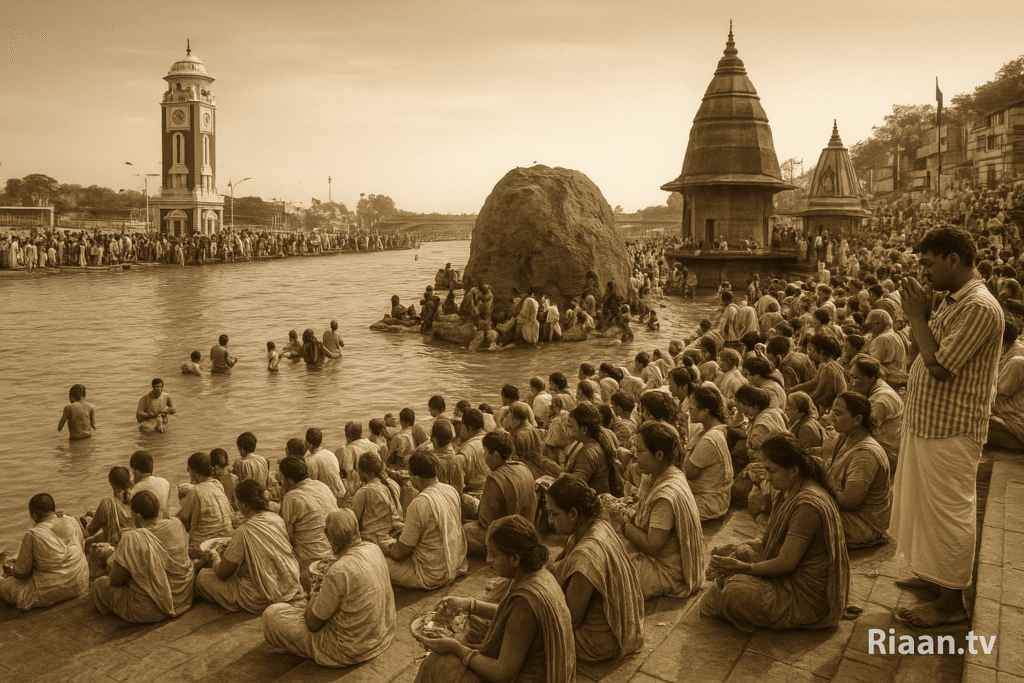Haridwar : The holy city of Haridwar echoed with chants and prayers today as thousands of devotees thronged Har Ki Pauri, Narayani Shila, and Kushavart Ghat to mark the beginning of Pitru Paksha—the 16-day period dedicated to honoring one’s ancestors. On this sacred full moon day, pilgrims took a ritual dip in the Ganges before offering tarpan and pind daan for the eternal peace of departed souls.
The fortnight-long observance, which will conclude on Amavasya (new moon), holds profound significance in Sanatan tradition. Throughout this period, devotees perform daily rituals including sacred bathing, tarpan, pind daan, Narayan worship, and feeding of Brahmins. According to astrologer and chief priest Pandit Manoj Tripathi, scriptures affirm that these rites ensure prosperity, harmony, and unbroken blessings for descendants.
Narayani Shila and Kushavart Ghat Witness Massive Turnout
Haridwar’s ancient shrines—Narayani Shila and Kushavart Ghat—saw overwhelming participation as pilgrims performed ancestral offerings after cleansing rituals. It is believed that offerings at Narayani Shila bring deep satisfaction to ancestral souls, ensuring peace, wellbeing, and protection for families.
Pandit Tripathi explained that Pitru Paksha is also known as a “Festival of Gratitude”, where families honor their lineage through remembrance. He said, “During this period, ancestors eagerly await tarpan and pind daan from their descendants. Once remembered, they bless their families abundantly.”
Haridwar: The Eternal Hub of Ancestor Worship
For centuries, Haridwar has been revered as a spiritual center for rituals connected with the Ganga. Tradition holds that pind daan after a holy dip in the Ganges aids ancestors in attaining liberation, while ensuring prosperity and protection for future generations. This deep-rooted belief draws lakhs of devotees from across India every year, reinforcing Haridwar’s timeless role as a seat of ancestral devotion.
